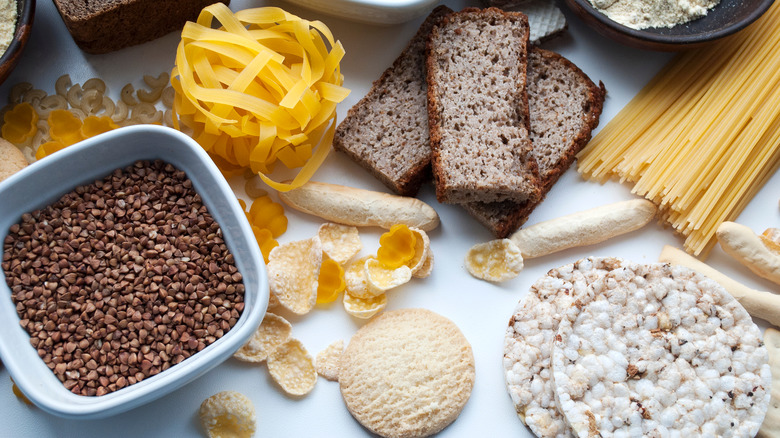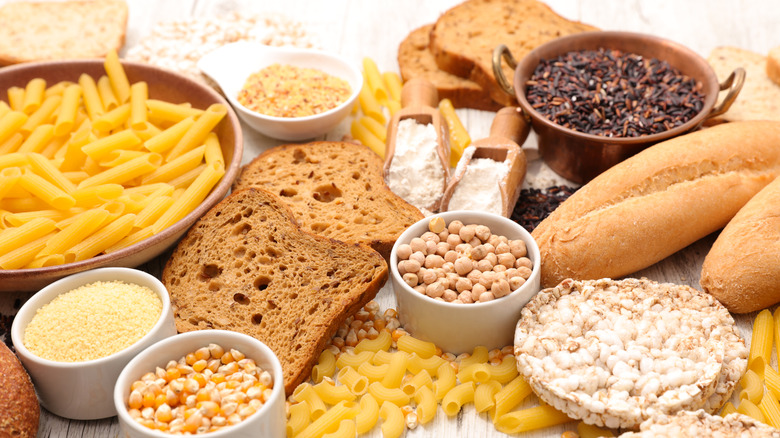Is Going Gluten Free Actually Good For You?
Eliminating gluten has become a popular diet trend among wellness seekers. If you're considering going gluten-free, it's important to know if it's really a healthy choice, or even necessary for your lifestyle.
According to Healthline, gluten is a group of proteins that can be found in certain grains including wheat, barley, rye, and spelt. Common foods that contain gluten include bread, pasta, baked goods, cereal, and even beer. Of course, there are plenty of gluten-free recipes to substitute gluten for other ingredients.
The gluten-free diet is typically recommended for people with celiac disease, gluten sensitivity or intolerance, and other medical conditions that prevent them from consuming gluten (per Mayo Clinic). Dr. Selvi Rajagopal, an internal medicine specialist, tells Johns Hopkins Medicine, "We know that some people eat something that contains gluten and then they don't feel well."
In those cases, doctors might recommend dietary changes to identify the cause of discomfort. However, eliminating gluten from your diet means paying close attention to food selections and ingredients. There are many naturally gluten-free foods that can be part of a healthy diet including fruits, vegetables, legumes, most low-fat dairy products, and gluten-free grains like quinoa and rice (via Mayo Clinic).
Risks and benefits of a gluten-free diet
According to Medical News Today, there is minimal evidence that a gluten-free diet is beneficial for anyone who has not been diagnosed with celiac disease or a gluten intolerance. There are also risks associated with a gluten-free diet like nutritional deficiencies, such as a lack of fiber.
Whole grains are an important part of your diet to help prevent chronic illnesses, regulate blood sugar, and lower cholesterol (per Johns Hopkins Medicine). Some foods containing gluten also provide vitamins and minerals.
Registered dietitian Jessica Laifer explains to Everyday Health, "for those who can tolerate it, gluten is not 'bad' at all when consumed responsibly. In fact, gluten-containing whole grains, such as bulgur and barley, are rich in fiber and vitamins, and some of the healthiest foods you can eat."
It is possible to lose weight by going gluten-free, but experts say that's likely because there's less consumption of processed and pre-packaged food (via Healthline). Nutritious foods are recommended to come first for those looking to shed pounds.
"Avoiding or reducing gluten may be a good idea for many people, even people who do not have celiac disease," registered dietitian Robin Foroutan tells Eat This, Not That!. "But it's just as important, if not more important, to eat the right kinds of food as it is to avoid certain foods."


